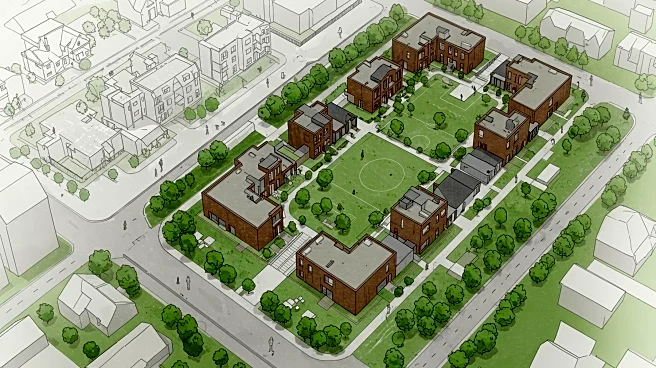What is the story about?
What's Happening?
The Marquette Township Board is reconsidering a proposal to develop workforce housing in Marquette Township, Michigan. The plan involves the sale of a five-acre plot to Renovare, LLC, and Wildflower Homes for the construction of 48 housing units. A key component of the proposal is a 10-year tax increment financing (TIF) plan, which would redirect tax revenues from the development to fund Renovare's purchase payment. Initially, the board rejected the TIF proposal, which originally spanned 30 years. However, after public comments at a recent meeting, the board voted to rescind its previous decision, indicating a willingness to reconsider the TIF as a funding tool. Township Manager John Kangas noted that while there is no opposition to the project itself, there is hesitancy regarding the use of residential TIFs due to their novelty. A special meeting is scheduled for Friday to discuss the purchasing agreement, the PUD agreement, and the TIF plan.
Why It's Important?
The reconsideration of the workforce housing proposal in Marquette Township is significant as it addresses the growing need for affordable housing solutions in the area. Workforce housing is crucial for supporting local economies by providing affordable living options for employees in various sectors. The use of TIF as a funding mechanism could set a precedent for future housing projects, potentially influencing how municipalities approach development financing. The decision could impact local tax revenue allocation and the township's financial planning. If successful, the project, named Heritage Trails, could serve as a model for other communities facing similar housing challenges.
What's Next?
The Marquette Township Board will hold a special meeting on Friday to further discuss the revised purchasing agreement, the PUD agreement, and the 10-year TIF plan. The outcome of this meeting will determine whether the project moves forward and how the township will manage the financial aspects of the development. Stakeholders, including local residents and developers, will be closely monitoring the board's decision, which could influence future housing projects and funding strategies in the region.
Beyond the Headlines
The use of TIF for residential projects raises questions about the long-term implications for municipal finance and community development. As a relatively new tool for funding housing projects, its adoption could lead to shifts in how local governments approach economic development and infrastructure investment. The project also highlights broader issues of housing affordability and the need for innovative solutions to address these challenges.
















